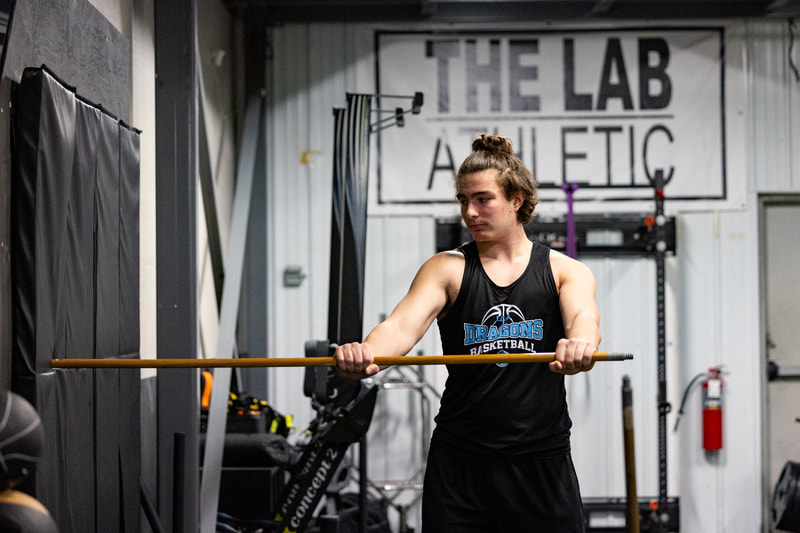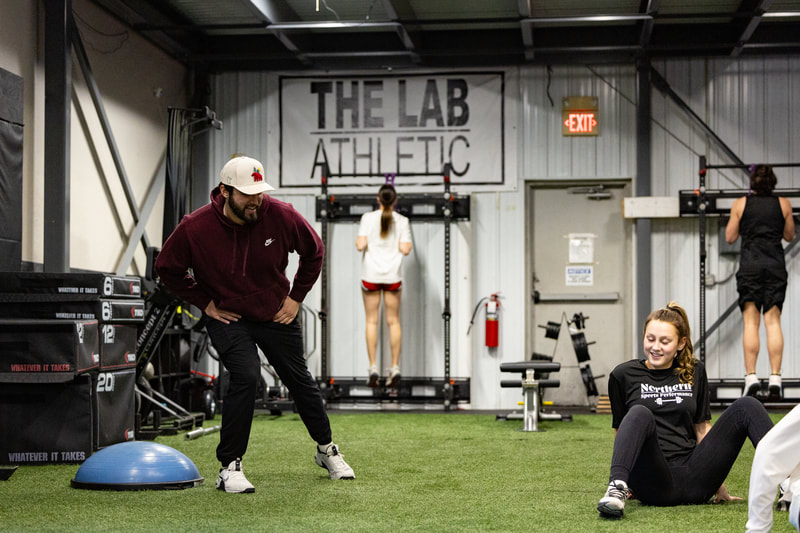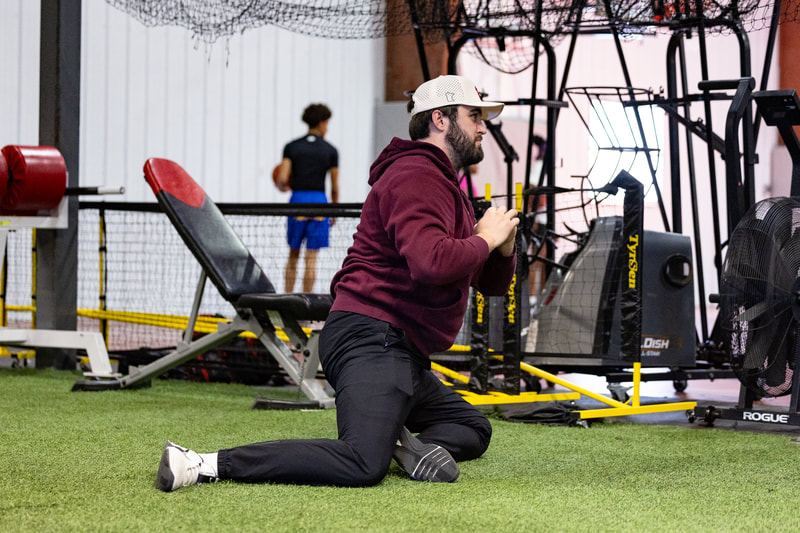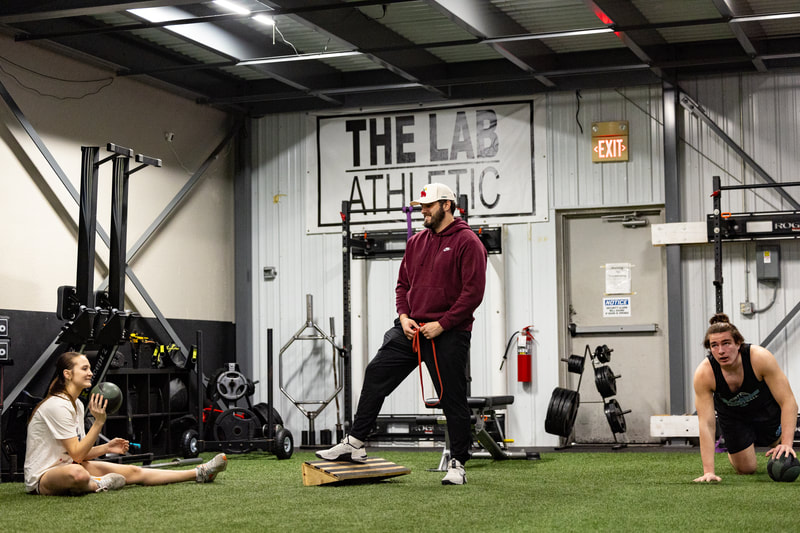|
Whether you dream of scoring the winning goal in a championship game, breaking records on the track, or mastering a new athletic skill, achieving your sports aspirations requires more than just talent—it demands dedication, perseverance, and strategic planning. Here are some key strategies to help you turn your sports dreams into reality.
1. Set Clear and Achievable Goals Start by setting clear, specific, and achievable goals that align with your sports aspirations. Break down your long-term aspirations into smaller, manageable milestones that you can work towards consistently. Whether it's improving your speed, mastering a new technique, or making the starting lineup, having well-defined goals provides you with a roadmap for success and keeps you motivated and focused on your journey. 2. Develop a Growth Mindset Cultivate a growth mindset—a belief that your abilities can be developed through dedication and hard work. Embrace challenges as opportunities for growth, learn from setbacks and failures, and persist in the face of obstacles. By adopting a positive and resilient attitude, you'll be better equipped to overcome adversity and continue progressing towards your sports aspirations. 3. Commit to Consistent Training and Practice Consistent training and practice are essential for honing your skills and maximizing your potential as an athlete. Create a structured training regimen that includes a mix of skill-specific drills, strength and conditioning exercises, and simulated game or competition scenarios. Make a commitment to showing up and putting in the work day in and day out, even when motivation wanes or obstacles arise. 4. Seek Expert Guidance and Feedback Don't be afraid to seek guidance and feedback from coaches, trainers, and mentors who can help you refine your technique, develop strategic game plans, and optimize your training approach. Value constructive criticism as an opportunity for improvement and growth, and be open to trying new approaches and techniques suggested by experienced professionals. 5. Take Care of Your Body and Mind Physical and mental well-being are crucial for sustained athletic success. Prioritize proper nutrition, hydration, rest, and recovery to fuel your body and optimize performance. Incorporate cross-training, flexibility exercises, and injury prevention strategies into your routine to maintain overall health and resilience. Additionally, prioritize mental health by practicing mindfulness, visualization, and stress management techniques to stay focused and mentally sharp. 6. Embrace Competition and Learn from Experience Embrace competition as a valuable opportunity to test your skills, challenge yourself, and measure your progress against others. Approach each competition with a competitive yet sportsmanlike attitude, focusing on giving your best effort and learning from both victories and defeats. Analyze your performance, identify areas for improvement, and adjust your training and preparation accordingly to continue evolving as an athlete. 7. Stay Persistent and Never Give Up Above all, stay persistent and resilient in pursuit of your sports aspirations. Understand that success rarely comes overnight and requires dedication, patience, and perseverance over the long haul. Stay committed to your goals, stay focused on the process, and never lose sight of the passion and drive that fuel your journey as an athlete. Remember that setbacks and challenges are inevitable, but they are also opportunities for growth and learning. Keep pushing forward, stay true to your aspirations, and trust in your ability to achieve greatness in the world of sports. In conclusion, achieving your sports aspirations requires a combination of goal-setting, growth mindset, consistent training, expert guidance, self-care, competition, and persistence. By embracing these strategies and committing to your journey as an athlete, you can unlock your full potential and turn your sports dreams into reality. So lace up your shoes, hit the field, track, or court, and embark on the exhilarating adventure of pursuing your sports aspirations with passion, determination, and unwavering dedication. In the fast-paced and strategic world of basketball, the point guard holds a unique and pivotal role. Often referred to as the "floor general," the point guard is tasked with orchestrating the team's offense, distributing the ball, and setting the tempo of the game. But what qualities distinguish a good point guard from the rest? Let's explore the key attributes that define the essence of a skilled and effective point guard.
1. Exceptional Court Vision At the heart of a good point guard's game is exceptional court vision—the ability to see the entire court, anticipate plays, and make split-second decisions. A good point guard possesses a keen awareness of their teammates' positions, defensive schemes, and scoring opportunities, allowing them to effectively read the game and create scoring opportunities for their team. 2. Masterful Ball Handling Skills Ball handling is a fundamental skill for any basketball player, but it's especially crucial for a point guard. A good point guard exhibits superior ball handling skills, including dribbling, passing, and protecting the ball under pressure. They can navigate through traffic, evade defenders, and deliver pinpoint passes with precision and accuracy, facilitating ball movement and creating scoring opportunities for their teammates. 3. High Basketball IQ Basketball IQ encompasses a player's understanding of the game, strategic awareness, and ability to make smart decisions under pressure. A good point guard possesses a high basketball IQ, recognizing defensive schemes, exploiting mismatches, and adapting to changing game situations. They know when to push the pace, when to slow down the tempo, and how to effectively manage the clock to maximize their team's chances of success. 4. Leadership and Communication As the floor general, a good point guard is a natural leader on and off the court. They possess strong leadership qualities, including confidence, poise, and the ability to inspire and motivate their teammates. A good point guard communicates effectively with their teammates, providing direction, encouragement, and constructive feedback to keep everyone on the same page and working towards a common goal. 5. Defensive Tenacity While much emphasis is often placed on offensive skills, a good point guard also excels on the defensive end of the court. They possess quick hands, lateral quickness, and defensive instincts that allow them to pressure opposing ball handlers, disrupt passing lanes, and create turnovers. A good point guard takes pride in their defensive contributions, knowing that their ability to stop the opposing team is just as crucial as their offensive prowess. 6. Unselfishness and Team-first Mentality A good point guard prioritizes the success of the team above individual accolades. They are unselfish players who are willing to sacrifice personal glory for the greater good of the team. A good point guard values ball movement, teamwork, and player involvement, recognizing that success is achieved through collective effort rather than individual brilliance. 7. Resilience and Composure Basketball is a game of highs and lows, and a good point guard maintains composure and resilience in the face of adversity. They remain calm under pressure, bounce back from mistakes, and lead by example with their unwavering confidence and determination. A good point guard embraces the challenges of the game, knowing that their ability to stay composed and focused is instrumental in guiding their team to victory. In conclusion, what makes a good point guard extends far beyond mere physical skills—it's a combination of exceptional court vision, masterful ball handling, high basketball IQ, leadership, defensive tenacity, unselfishness, and composure under pressure. By embodying these qualities, a good point guard not only elevates their own game but also elevates the play of their teammates and contributes to the success of the team as a whole. So whether you're a seasoned veteran or an aspiring point guard, remember that mastering the court requires more than just talent—it requires the dedication, discipline, and intangible qualities that define the essence of a true floor general. Success in any endeavor requires more than just talent and hard work—it also demands proper fueling of the body to perform at its best. Whether you're an athlete striving for peak performance, a student aiming for academic excellence, or a professional pursuing career success, the food you eat plays a crucial role in fueling your journey to success. Let's explore some key strategies for nourishing your body and optimizing your nutrition for success.
1. Prioritize Nutrient-Dense Foods Fuel your body with nutrient-dense foods that provide essential vitamins, minerals, and macronutrients to support overall health and performance. Incorporate a variety of colorful fruits and vegetables, whole grains, lean proteins, and healthy fats into your diet to ensure that you're getting a wide range of nutrients to fuel your body and brain. 2. Hydrate Properly Hydration is essential for optimal performance, as even mild dehydration can impair cognitive function, physical endurance, and overall well-being. Aim to drink plenty of water throughout the day, especially before, during, and after physical activity. Avoid sugary drinks and excessive caffeine, as they can lead to dehydration and energy crashes. 3. Eat Regular, Balanced Meals Fuel your body consistently by eating regular, balanced meals that provide a combination of carbohydrates, proteins, and fats to sustain energy levels and support recovery. Aim to eat every 3-4 hours to maintain stable blood sugar levels and prevent energy dips. Include a source of lean protein, complex carbohydrates, and healthy fats in each meal to keep you feeling satisfied and energized. 4. Time Your Meals and Snacks Strategically time your meals and snacks to fuel your body before, during, and after periods of activity or mental exertion. Eat a balanced meal or snack containing carbohydrates and protein 2-3 hours before exercise to provide sustained energy. During prolonged activity, refuel with easily digestible carbohydrates to maintain energy levels. After exercise, consume a combination of carbohydrates and protein to support muscle recovery and replenish glycogen stores. 5. Listen to Your Body Pay attention to your body's hunger and satiety cues, and eat intuitively to fuel your body's needs. Avoid restrictive diets or overly rigid eating patterns, as they can lead to nutrient deficiencies, low energy levels, and impaired performance. Instead, focus on nourishing your body with a balanced and varied diet that provides the nutrients it needs to thrive. 6. Optimize Performance with Pre-Workout and Post-Workout Nutrition Maximize your performance and recovery with targeted pre-workout and post-workout nutrition strategies. Before exercise, consume a small meal or snack containing carbohydrates and protein to fuel your workout and prevent fatigue. After exercise, refuel with a combination of carbohydrates and protein to support muscle repair and replenish energy stores. 7. Supplement Wisely While a balanced diet should provide most of the nutrients your body needs, supplements can be helpful for filling in any gaps or addressing specific nutritional needs. Consult with a healthcare professional or registered dietitian to determine if supplements are necessary for your individual circumstances, and choose high-quality products from reputable sources. 8. Practice Mindful Eating Finally, practice mindful eating by savoring your meals, paying attention to hunger and fullness cues, and avoiding distractions such as screens or multitasking while eating. Eating mindfully can help you enjoy your food more fully, improve digestion, and foster a healthier relationship with food. In conclusion, fueling your body for success is essential for achieving your goals and reaching your full potential. By prioritizing nutrient-dense foods, staying hydrated, eating regular, balanced meals, timing your meals and snacks strategically, listening to your body, optimizing performance with pre-workout and post-workout nutrition, supplementing wisely, and practicing mindful eating, you can nourish your body and mind to support success in all areas of your life. Remember, food is not just fuel—it's the foundation of your journey to success. Youth sports offer a myriad of benefits beyond the thrill of competition, including physical fitness, skill development, teamwork, and personal growth. While structured team practices and games are essential components of athletic development, independent training sessions can also play a significant role in enhancing overall sports performance. Whether you're a young athlete looking to take your game to the next level or a parent seeking to support your child's athletic aspirations, here are some effective strategies for youth sports training that can be done independently to maximize performance on the field, court, or track. 1. Strength and Conditioning A solid foundation of strength and conditioning is essential for athletic success in any sport. Incorporate bodyweight exercises such as squats, lunges, push-ups, and planks into your training routine to build strength, stability, and muscular endurance. Additionally, include dynamic movements such as jumping, sprinting, and agility drills to improve speed, power, and agility on the field. 2. Cardiovascular Fitness Cardiovascular fitness is crucial for sustaining high levels of energy and endurance during games and practices. Incorporate cardiovascular exercises such as running, cycling, swimming, or interval training into your training regimen to improve cardiovascular health, stamina, and aerobic capacity. Aim for at least 30 minutes of cardiovascular exercise most days of the week to maximize endurance and performance. 3. Skill Development Dedicate time to honing your sport-specific skills through focused practice sessions. Break down fundamental skills such as shooting, passing, dribbling, catching, throwing, or hitting into individual drills that you can practice on your own. Use cones, targets, or obstacles to create challenging drills that simulate game-like scenarios and improve your technique, accuracy, and decision-making under pressure. 4. Speed and Agility Training Speed and agility are essential attributes for success in many youth sports. Incorporate speed and agility drills such as ladder drills, shuttle runs, cone drills, and agility ladder exercises into your training routine to improve footwork, quickness, and change of direction. Focus on explosive movements and proper technique to maximize speed and agility on the field or court. 5. Flexibility and Mobility Flexibility and mobility are often overlooked aspects of athletic performance, yet they are essential for preventing injuries and optimizing movement mechanics. Incorporate dynamic stretching, foam rolling, and mobility exercises into your warm-up and cool-down routines to improve flexibility, range of motion, and joint mobility. Pay special attention to areas of tightness or weakness to address imbalances and reduce the risk of injury. 6. Mental Skills Training Mental skills training is just as important as physical training for athletic success. Develop mental toughness, focus, and confidence through visualization, goal-setting, and positive self-talk techniques. Practice mindfulness and relaxation exercises to manage stress and anxiety and maintain peak performance under pressure. Cultivate a growth mindset that embraces challenges, learns from setbacks, and believes in your ability to succeed. 7. Rest and Recovery Rest and recovery are essential components of any training program to allow the body to repair, regenerate, and adapt to the demands of training. Prioritize adequate sleep, hydration, and nutrition to support optimal recovery and performance. Listen to your body and incorporate rest days into your training schedule to prevent overtraining and burnout. 8. Consistency and Discipline Consistency and discipline are key to achieving long-term success in youth sports training. Set specific, measurable goals for your training and commit to a regular training schedule that allows for gradual progression and improvement over time. Stay focused, motivated, and disciplined in your training efforts, even when faced with obstacles or setbacks along the way. Conclusion Youth sports training on your own can be a valuable supplement to structured team practices and games, providing opportunities for individual skill development, physical conditioning, and mental preparation. By incorporating strength and conditioning, cardiovascular fitness, skill development, speed and agility training, flexibility and mobility work, mental skills training, rest and recovery, and consistency and discipline into your training regimen, you can enhance overall sports performance and achieve your athletic goals. Remember to train smart, stay focused, and enjoy the journey of self-improvement and growth as you strive to become the best athlete you can be. Check out The Lab Athletics affiliate trainers here. Jeremiah (pictured) is our resident Sports Performance trainer.
|
Ham Lake, MInnesotaRead
All
|













 RSS Feed
RSS Feed
